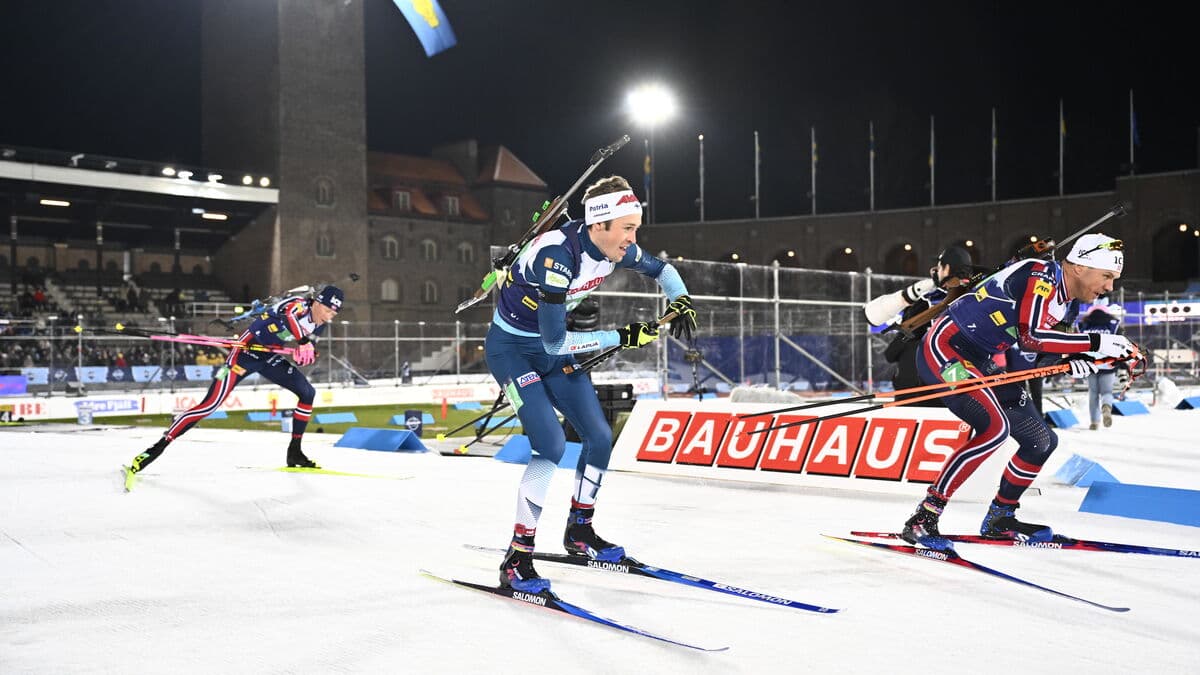For me, there is a lot that started in Russia, that defined me and that may have shaped who I became later, says Åsne Seierstad.
In 1990, she visits her father, who works in what was then Leningrad. She encounters a darkened city in a Soviet Union on the brink of collapse, where store shelves and streets are empty.
Her interest is piqued by the mighty neighbor to the east. She moves to Moscow to study, finds herself in the middle of the making of modern Russia, and becomes a correspondent for Norwegian newspapers.
In the mid-90s, the country is newly liberated, chaotic and open, ready for a brighter future.
Fear
30 years later, Seierstad returns to a Russia where censorship is once again silencing writers, where people are imprisoned for expressing their opinions, and paranoia is spreading.
Fear has taken hold and it is because of Putin. That the country that fought against the power of the KGB appointed a KGB man as president is a tragedy.
Based on the story of defected Wagner soldier Andrei Medvedev – which begins with a dramatic escape across the border to Norway – she depicts a Russia in disintegration.
She visits Medvedev's dilapidated childhood home in Siberia, meets relatives, teachers and friends. She interviews Kremlin loyalists, the indifferent and the resisters; politicians and journalists, a soldier's wife on the barricades and a Russian fighting for Ukraine.
In the Siberian taiga, she meets a sentimental older man who enjoys poetry and crocheted decorations – and thinks that war is best solved with an atomic bomb.
"A heart on the gazebo, an atomic bomb over Kiev. This was Russia. So heartless, so brutal," writes Seierstad.
Valves
In St. Petersburg, she meets old friends, liberals from the theater world who, despite their disgust with President Vladimir Putin's repression, to Seierstad's surprise, believe that the war is Ukraine's fault.
They are against Putin, but they are still quite Russian chauvinistic in relation to the language and culture, because "we are the best and it has always been that way."
The book depicts a brutal country distorted by lies, but the author is also surprised by what is actually possible to say.
People used forbidden words like war and invasion. The newspaper Novaya Gazeta debated whether Russia is heading towards fascism. So there is room, but there may be valves that Putin is keeping open so that there is not so much pressure that people take to the streets.
Insulation:
They say that Russia is a so-called atomized society. There is a lack of organization, and it is probably Putin's dark plan that every single person is alone. He has removed the media, so you can't complain there. He has removed the courts, so you can't complain there. You can't find a lawyer. He has removed user organizations and unions. Everything is controlled, so if something happens to you, you are alone.
Courage (Regarding the Russian exiled writer Sergei Lebedev, who in an interview with TT calls his compatriots "zombies"):
He also says that the only right thing to do is to leave the country, but how is he helping Russia? I met lots of brave people – like the soldier’s wife Maria, who is fighting to get the mobilized soldiers home; the local politician Lev Shlosberg, who is sometimes imprisoned, sometimes under house arrest but continues with his anti-war message; or the entire editorial staff of Novaya Gazeta – not to mention all their subscribers.
Born: 1970
Lives: Oslo
Background: Journalist and author. Began her career as a correspondent in Russia 1993–1996, then in China. Has reported from wars in Chechnya, the Balkans, Afghanistan and Iraq. Became known to a wide Swedish television audience when she, as the only Scandinavian journalist, remained and reported from Baghdad during the US invasion in 2003.
Current with: The reportage book "Unrest: Russia from the Inside" which has been awarded the Brage Prize, Norway's equivalent of the August Prize, among other things.
Books: Debuted in 2000 with "With His Back to the World" about Serbia and had his big breakthrough with the bestseller "The Booksellers in Kabul" (2002). Has also written "One Hundred and One Days" (2003) about the Iraq War, "The Angel in Grozny: Stories from Chechnya" (2008), "One of Us: A Story about Norway" (2013) about Anders Behring Breivik's terrorist act in 2011, "Two Sisters" (2016) about two Norwegian IS travelers, "The Afghans" (2023) about Afghanistan after the return of the Taliban.
In progress:
I don't really feel finished with Russia, but I can't go back, so I'm thinking about a different format. Another possibility is to see it from the other side and go to Ukraine. I also have a book project I've started about the USA to finish.






